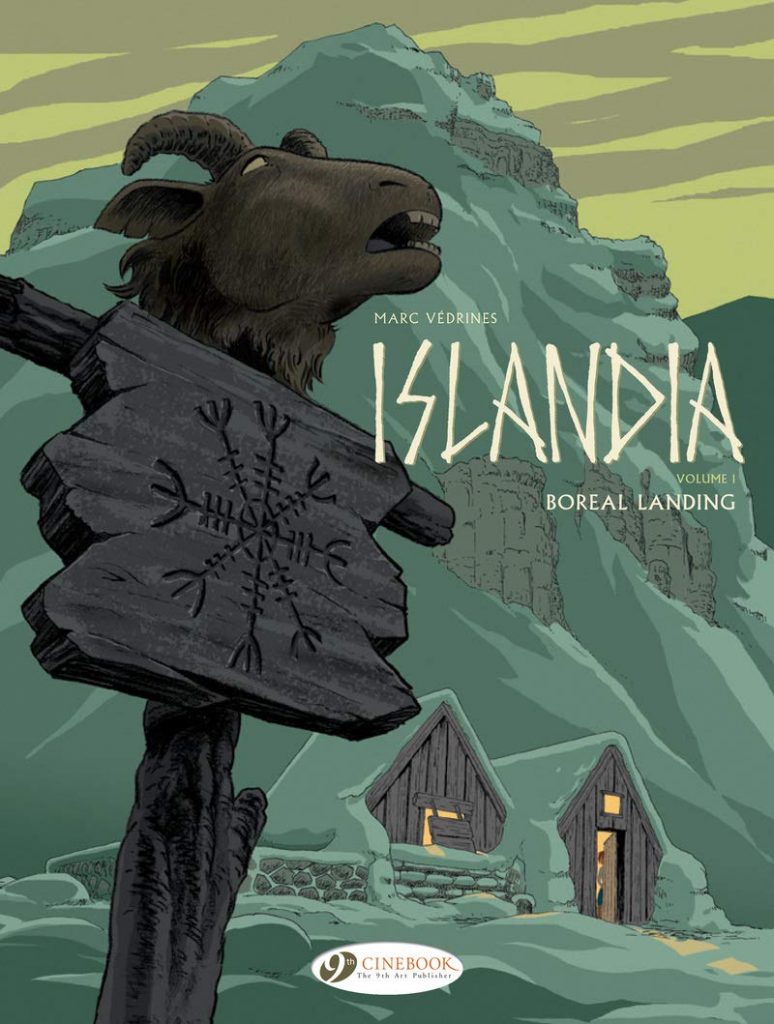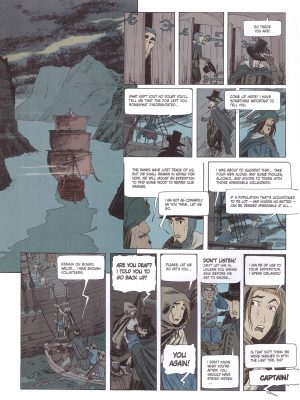Review by Frank Plowright
Islandia’s three volumes begin as a gloomy meditation on the poverty of 17th century, the series concentrating on Iceland, but Boreal Landing is also occupied with the sea journey young Jacques takes to arrive there. It takes a long while for the story to reveal what’s disclosed by the back cover blurb, that thoughout his sixteen years Jacques has been haunted by visions of a strange, lava-covered land. Strange things happen around him, and he’s instinctively able to speak Icelandic. He feels compelled to travel there and search for clues as to why.
When he created Islandia Marc Védrines’ professional experience was just one previous series, and he only drew that. That lack of experience possibly accounts for the confused writing style, great emphasis placed on scenes that don’t require it, while other obvious questions remain unanswered. Given Islandia is a trilogy it’s unreasonable to expect complete disclosure in the first volume, but too much of Jacques, his streak of luck and the extraordinary things that occur to protect him have to be taken as given. It’s not until the final volume before this is explained, by which time Védrines is going to lose frustrated readers.
Strangely, Boreal Landing‘s best sequence is one that appears largely unnecessary, but given greater context in the final volume. The opening twenty pages are set aboard a ship. Védrines pours in an immense amount of research as he details the traditions and superstitions of the crew, how a fishing boat works, and the expectations of both the owner and the captain. It’s an immersive experience thanks to grubby characters and the substance of the journey, yet the only real purpose is to establish Jacques and transport him to Iceland. Once there trouble continues to surround Jacques, and an aspect Védrines handles well is just how isolated the inhabitants were in the 1600s, unwillingly ruled by the Danes and shackled by their superstitions. Old myths are important, and with only candles illuminating the night, much has to be packed into the brief February daylight hours.
Jacques survives more uncanny experiences to set him up for The Westfjords, where he may discover more about his visions.





